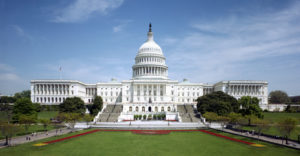 Specifics of the Republican plan for replacing the Affordable Care Act (ACA) were long promised by the Trump administration, and indeed, a long time in coming when one considers that Speaker Paul Ryan and other Republicans have been discussing the need for ACA repeal and replacement as early as 2009. Yet now that specifics are here in the form of the Republicans’ proposed American Health Care Act (AHCA), many people wish they’d leave and return in a more palatable form.
Specifics of the Republican plan for replacing the Affordable Care Act (ACA) were long promised by the Trump administration, and indeed, a long time in coming when one considers that Speaker Paul Ryan and other Republicans have been discussing the need for ACA repeal and replacement as early as 2009. Yet now that specifics are here in the form of the Republicans’ proposed American Health Care Act (AHCA), many people wish they’d leave and return in a more palatable form.
Over 50 groups announce opposition to AHCA
Among the groups that immediately declared their opposition to the bill: the American Medical Association (AMA), the American Hospital Association (AHA), the American Cancer Society, the American Health Care Association (AHCA), National Physicians Alliance (NPA), and the AARP. In total, more than 50 organizations emphatically oppose the proposed ACA replacement (and not just in the medical field: teachers, municipal employees, and religious organizations have also made their opposition known).
Among common threads in the disapproval of the AHCA are the threats to Medicare and Medicaid, the fact that older, sicker, and poorer individuals will be adversely impacted, and the reality that as many as tens of millions of Americans will ultimately be left without coverage. (However, on the other side of the displeasure coin, some conservative Republicans are criticizing the bill because they say it is too similar to the ACA and still affords too many too much.)
The broad strokes of the how the proposed AHCA bill differs from the ACA:
Insurers will still be required to cover people with preexisting medical conditions. However, insurers will be allowed to impose a surcharge (30% of the premium cost) when people re-enroll after letting their policies lapse, and the surcharge would remain in place for a full year of coverage.
The Medicaid expansion that was responsible for millions of Americans getting health coverage who hadn’t before will be phased out by 2020.
All penalties on individuals or employers for not having coverage will be retroactively removed, back to 2016.
The current sliding scale of subsidies for premium payments will be replaced with flat tax credits ranging from $2,000 to $14,000 that vary with age and, to a lesser degree, income.
The ceiling on health savings account (HSA) contributions will be raised (up to $6,550 for individuals and $13,100 for families). Additionally, the prohibition on purchasing over-the-counter meds through HSAs (before tax) will be lifted.
The AHCA will do away with the following taxes:
-the 10% tax on tanning salon services;
-the 2.3% tax on some medical devices;
-the 3.8% tax on some investment income earned by high income individuals;
-the 0.9% Medicare tax increase for high income individuals.
A long road for the bill … perhaps culminating in a dead-end
If the outpouring of public disapproval is any indication of when or if the AHCA will clear all necessary hurdles to become law, it won’t be any time soon. Paul Ryan has said that the bill will have room for amendments; House Democrats have said that they intend to introduce in the ballpark of 100 amendments. Therefore, it will likely be a while before the Senate receives the AHCA for consideration.
In a statement, the AMA said the AHCA “does not align with the health reform objectives that the AMA set forth in January to protect patients. While the ACA is imperfect, the current version of the AHCA is not legislation we can support.
The replacement bill, as written, would reverse the coverage gains achieved under the ACA, causing many Americans to lose the health care coverage they have come to depend upon.”
And the American Public Health Association said: “This proposal would jeopardize the health and lives of many millions of Americans. It would dramatically reverse progress we’ve made in controlling health care costs and assuring quality care, and it would gut patient protections, investments in prevention and access to care for the most vulnerable Americans.”
This blog post is provided for educational purposes only and is not offered as, and should not be relied on as, legal advice. Any individual or entity reading this information should consult an attorney for their particular situation. For more information/questions regarding any legal matters, please email [email protected] or call 310.203.2800.